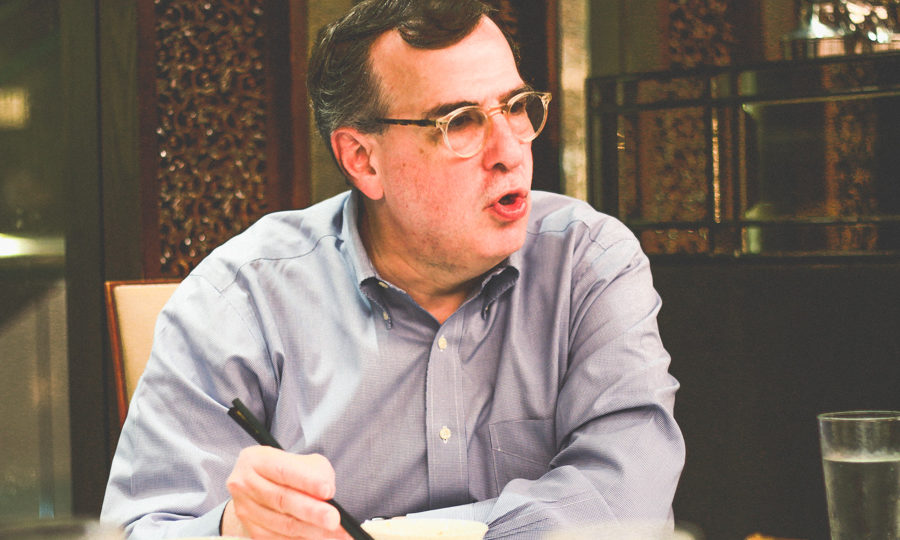As a former US ambassador to the Republic of Singapore, Frank Lavin was a name we thought of immediately when looking for a clear-eyed assessment of this week’s summit between US President Donald Trump and North Korean leader Kim Jong Un.
Nominated by former president George W. Bush, Lavin was sworn in in August 2001 and departed in 2005, having spent significant time engaging with all three of Singapore’s prime ministers, past and present.
Despite having served as a Republican White House aide and the political director for Ronald Reagan from 1987 to 1989, Lavin is on record as not being much of a fan of the current US president.
“It might not be entirely clear that Hillary Clinton deserves to win the presidency, but it is thunderingly clear that Donald Trump deserves to lose,” Lavin wrote in an op-ed for CNN during the 2016 presidential race.
Publicly, he supported Clinton — the first time he had voted for a Democratic presidential nominee in 40 years. “Trump falls short in terms of the character and behavior needed to perform as president. This defect is crippling and ensures he would fail in office,” he wrote at the time.
Two years since that piece, The Donald is very much president and the first one in office to ever have a face-to-face meeting with a North Korean leader, one scheduled to take place on Tuesday here in Singapore.
Lavin, meanwhile, has moved into the private sector, serving as a founder and CEO of China-based e-commerce service provider Export Now. His diplomatic talents, however, remain as sharp as ever, as evidenced at a sit-down last week with Coconuts Singapore over dim sum, roast duck, and char siew bao.
During a lively, nearly two-hour discussion, Lavin revealed some valuable insights into what we can expect from this week’s summit, all while weaving in anecdotes from his time in politics and managing an appreciative chuckle or two from our elderly waitress as he deftly made requests in excellent Mandarin.
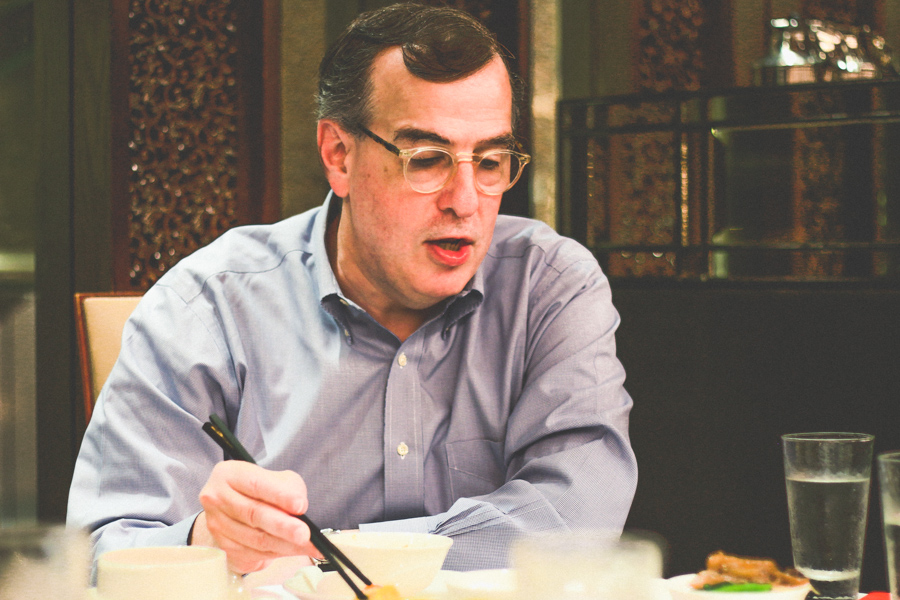
On what might be going on behind the scenes for the summit
Well, right now there is an enormous amount of preparatory work being done. There are two main channels. One is administrative/operational – when are people landing, who’s in the delegation, who is sitting at (which) table? How many sessions are we having, who’s in each session, what is the agenda? This is all negotiated. Because the US will typically at some point want to talk about human rights, and the North Koreans will say that’s not a stated purpose.
So that’s one path, how is this all supposed to work? The NK side will say we have 14 members of our delegation, the US will say we have eight. So all this will be negotiated out. How long should each session be? 45 minutes? 90 minutes?
The other side – the more serious side – the substance: What is the US actually going to advocate, what is the US seeking, what are US goals, and how would the US view this as a successful outcome or not?
On Singapore’s role as neutral ground
Singapore is very comfortable typically playing a host role, it welcomes that. So it is not a huge shock to them (to be chosen as the summit location) even though the timing isn’t helpful.
I would say this: I would advocate the US (not pay for the hotel) because you’ve got a moral hazard there. You are saying upfront that NK attaches no value to this. This is a casuistry exercise for them, there is no value at all. We’re subsidizing them. If I were Singapore I would say “look, I want to lean forward symbolically, but only symbolic. I don’t really want to underwrite the cost.”
So I would say something like this to both sides: “We – the Singapore government – would be willing to underwrite, say, the final night banquet. Come as our guests. We’ll pay for everybody. This could be a hundred people, two hundred people. We’ll pay for the whole thing.”
So we’ve done something nice, we’ve done it for everybody, but we’re not taking you off the hook. If you’re going to empty the mini-bar, that’s on you.
If I were the Singapore side, I think I would say, “we’re here to facilitate what you fellas want to do. We’re not here to solve the problems for you.”
On why the Capella Hotel was chosen as the summit location
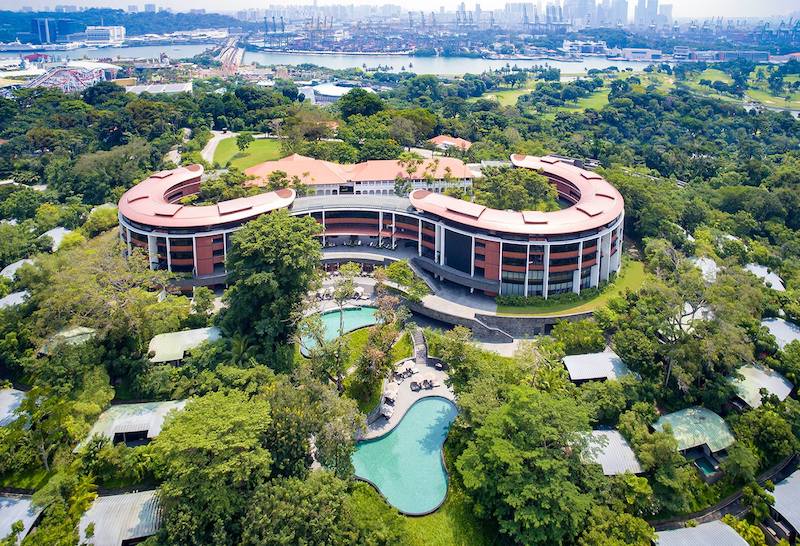
I think their biggest concern is movements in the city. Shangri-La is great because it is safe and you can isolate it and segregate it. So you have a lot of high-level things there. But it’s not that good if they’re going to take all of Orchard Road.
And these meeting schedules can be moving targets. Meaning: look, our agenda says we’re having three meetings over the course of a day, and one the next morning and then it’s over. But what’ll happen is they’ll say we’ve got to break beyond this point or we have to press on that point.
So, the point is, you’re going to have a dozen motorcade movements of different parties moving to different places. So I think you are better off just having everyone meet on Sentosa, so if there are a dozen movements, it’s not going to disrupt the city.
On how Trump is doing so far
I think we really can’t give a fair answer to that until after the fact and maybe years after the fact. Because he’s an unconventional guy. He’s a disruptor, he ignores systems and processes. But I don’t know whether to score that negatively or positively. Sometimes the established systems and processes aren’t that good. Sometimes they haven’t gotten us anywhere.
So you can say the proof is in the pudding. If he gets something, if he produces something from this, then you’ll say maybe we needed to be a bit disruptive, right?
The fundamental problem is North Korea is a dictatorship. They’re not interested in doing anything except being unhelpful. So it doesn’t matter how disruptive you are, you aren’t getting anything out of it. So we don’t know this.
I think most foreign policy specialists would not have done what he did. But you know, he got China to move on sanctions, he got North Korea to move. The fact that he’s moved them off their status quo is sort of the good news. But that’s a pre-condition to a resolution, that isn’t a resolution. You don’t know what the ultimate outcome is, so I’ve got to reserve judgment.
I was kind of gratified to see that Trump’s comments over the last few days were about reducing expectations.
He was saying “this goes on for a number of years, this is the first meeting.” So he really moved away from his rhetoric of “we’re going to solve this problem.” I think he’s got an earful of insight from other people.
On the summit’s initial (and brief) cancellation
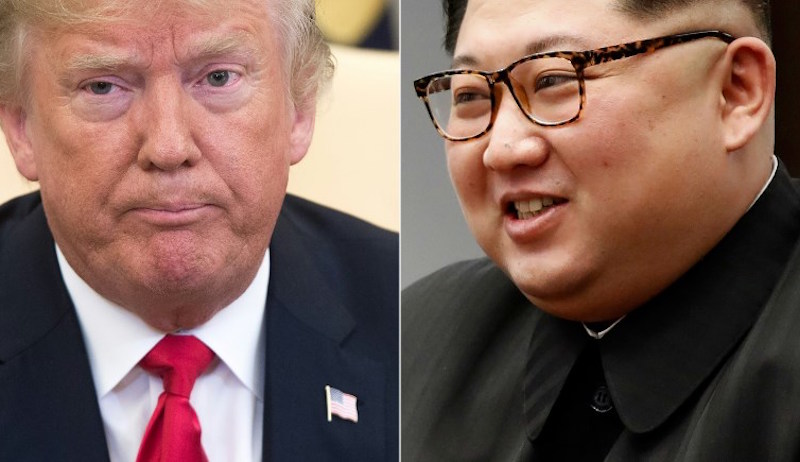
I think Trump handled this well. They refused to show up at a planning meeting in Singapore, that’s when Trump writes his “Get Lost” note saying “Hey, I love you, but you guys suck, and so we can’t do this meeting.”
I thought he did the right thing. You can argue about the grammar, but saying get lost was the right message. Because then (the North Koreans) ran right back.
This is somewhat intuitive, but I think what Trump gets (I think most professionals miss this): if you have a recalcitrant party, the American thing to do is “if you’re being difficult, I need to find a way to cultivate you, so I move toward you if you’re being difficult.”
What Trump gets with (Kim) is that if he’s being difficult, move away from him. Move away from him and say “you blew it and I’m going.” And so that worked — the guy came back to the table.
But that was only a tactical back-and-forth. That isn’t the ultimate outcome.
At least Trump’s got a good situational read about what to do. But he also acts in an erratic fashion, he says stuff unscripted. There a lot of contradictory gestures and statements, so there’s a lot of confusion in the process as well. And I don’t think he himself knows where he wants to go.
On what Hillary Clinton would have done if she was president
Look, I gotta believe that Kim Jong Un would have done the same type of thing that sparked this — meaning the missile flights and nuclear testing that got everybody spun up.
What would she have done? I don’t know. I think she would have reacted somewhat similarly to how Trump reacted. Did she have credibility with China, and would they have responded? Beats me.
But Hillary would not have said, “I want to meet with him.” She would have said look, we’ve had meetings in New York, we’ve had meetings with their UN ambassador and our UN ambassador. So we would have done something like that. And we would have probably upped sanctions to some extent.
I don’t know where we’d be if Hillary won… I don’t think radically off, but I don’t think you’d have a summit. You’d have more conventional diplomatic talks, is my guess.
On what the world can expect from the summit
Well, we don’t know what’s going to happen. I think you could easily have a dynamic where both countries come out ahead. Look, I sort of subscribe to a worldview that says if North Korea opens up a bit, they’ll enjoy a better life – and so they’re a winner. So don’t view that as saying you’re accommodating the US or you’re abandoning your principles. Say you’re just being practical, you’re going down the same path China went down, even if they just partially go down that path.
So I’d say you don’t have to think about US winning or North Korea losing. You’d say North Korea is sending out some signals that they’ve got some flexibility on their government policy, and they’re willing to make some changes in their model to adjust to the current age. And the US is getting some signals from these guys that they want to join the international community.
They’ve got such a terrible history on, you know, human rights, international behavior. So, frankly, our immediate goal is just to get them to stop nuclear tests and stop ballistic missile flights. And they’ve more or less stopped. They clearly got word from China on that, because they’ve knocked that stuff off.
So, how much further can we take it beyond that? I don’t know. But at least missile flights and nuclear tests are both verifiable, so you can at least tell something has been done.
What we can rule out as a possibility in this first meeting is any extraordinary accomplishment like, you know, ending the Korean war, or a nuclear arms agreement. I think we can rule that out. And that’s the signal we’re getting from Trump. Those are complicated, challenging goals.
I think there’s a lot of baby steps that could take place. Having to do with commercial activity, family unification, international organization participation. There’s a lot of things that could take place there that we could see some movement on.
What you want in diplomacy is, you want to earn the right to proceed. So at least you’re in the game there, and the game is you can keep gaining yards on each play. If that’s what happens, I’ll feel very positive about this, that these guys actually spent their time well.
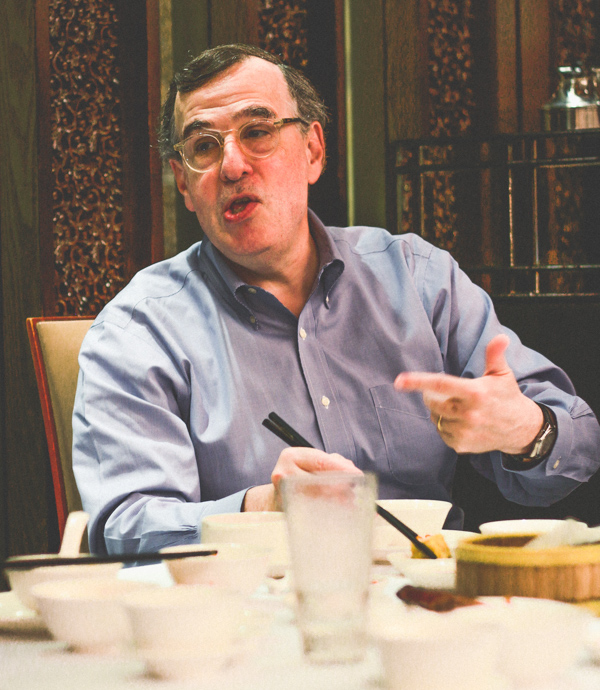
On the summit’s impact on Singapore
I think there is much more upside than downside in this for Singapore — meaning it bolsters its reputation as good international citizens and as a competent place, so it’s not bad for them to be in that zone. Barring a disruption, barring a shock, I think they’re viewed as a good host, a functional place.
I think it’ll be a net gain. It’s not going to change (Singapore’s) monthly GDP numbers, but I think it will be a net gain. The presidential traveling party can be 700 people. International media outlets are coming. It’s a huge group of folks.
What’s the downside for Singapore? If something goes wrong. You could either have an external problem, a protest, or something — which I think is pretty remote. Or you can have something mechanically go wrong. Literally, something breaks down. I think that’s pretty remote too. They’ve got good systems, high integrity.
But there’s some risk there if the whole thing just doesn’t work.
